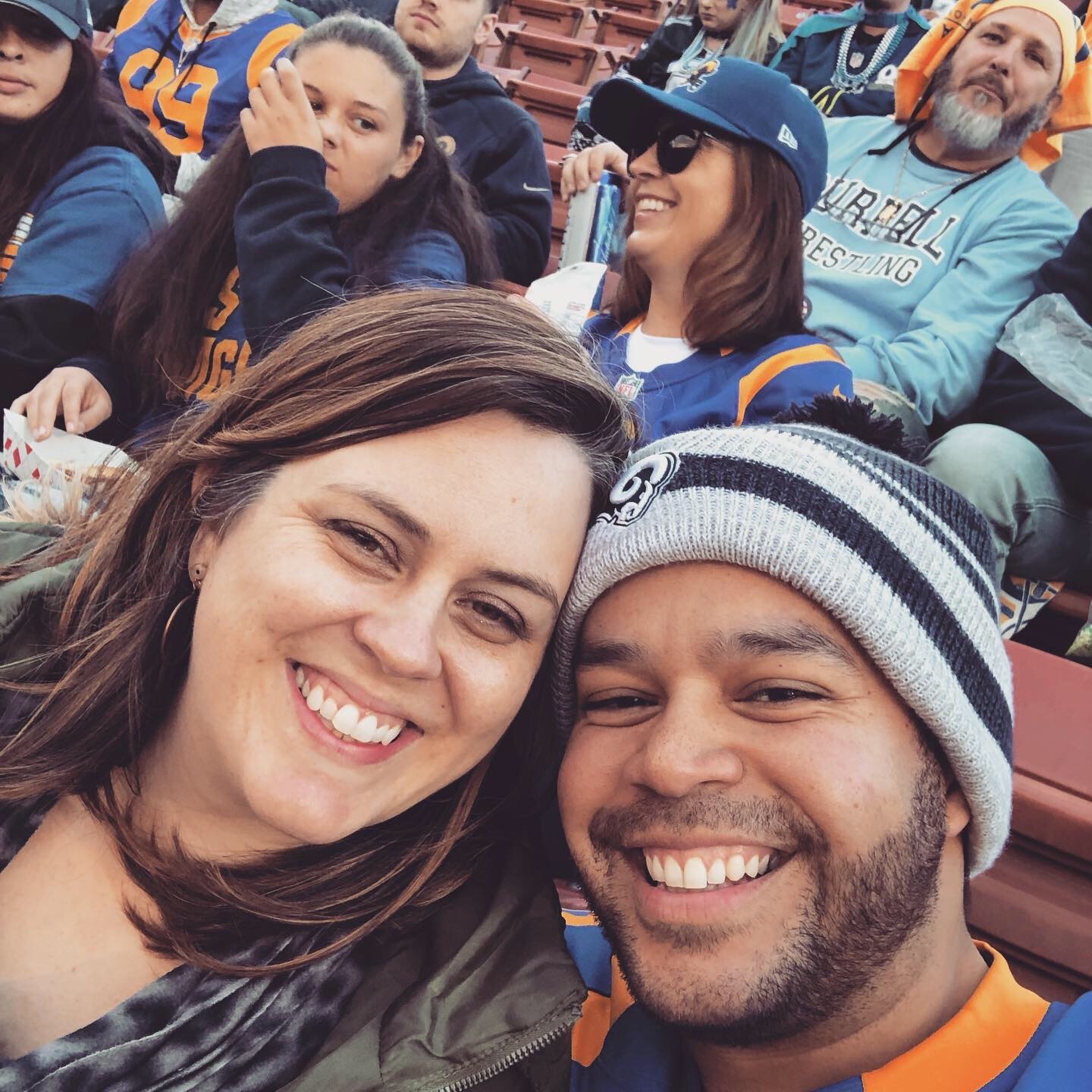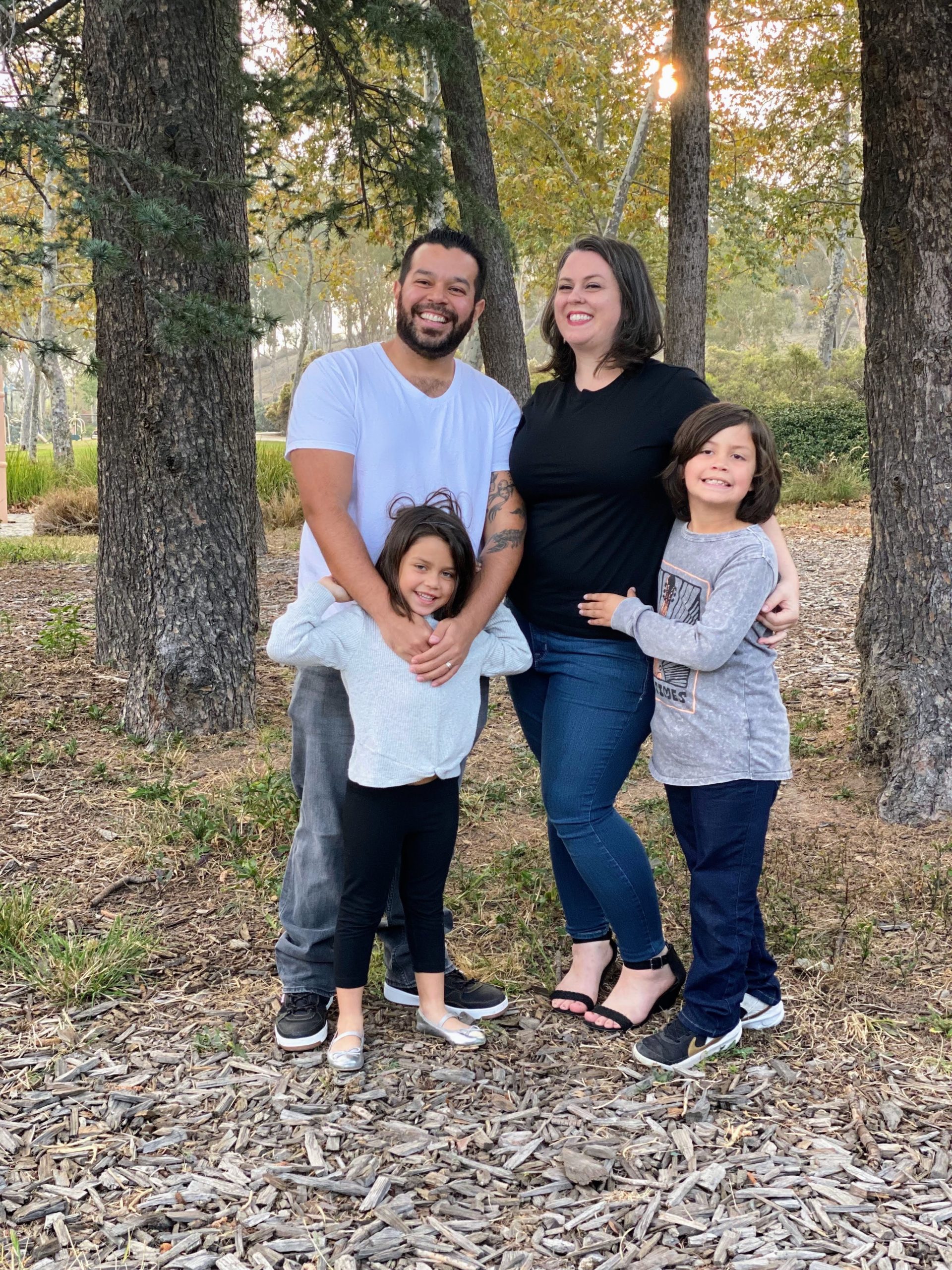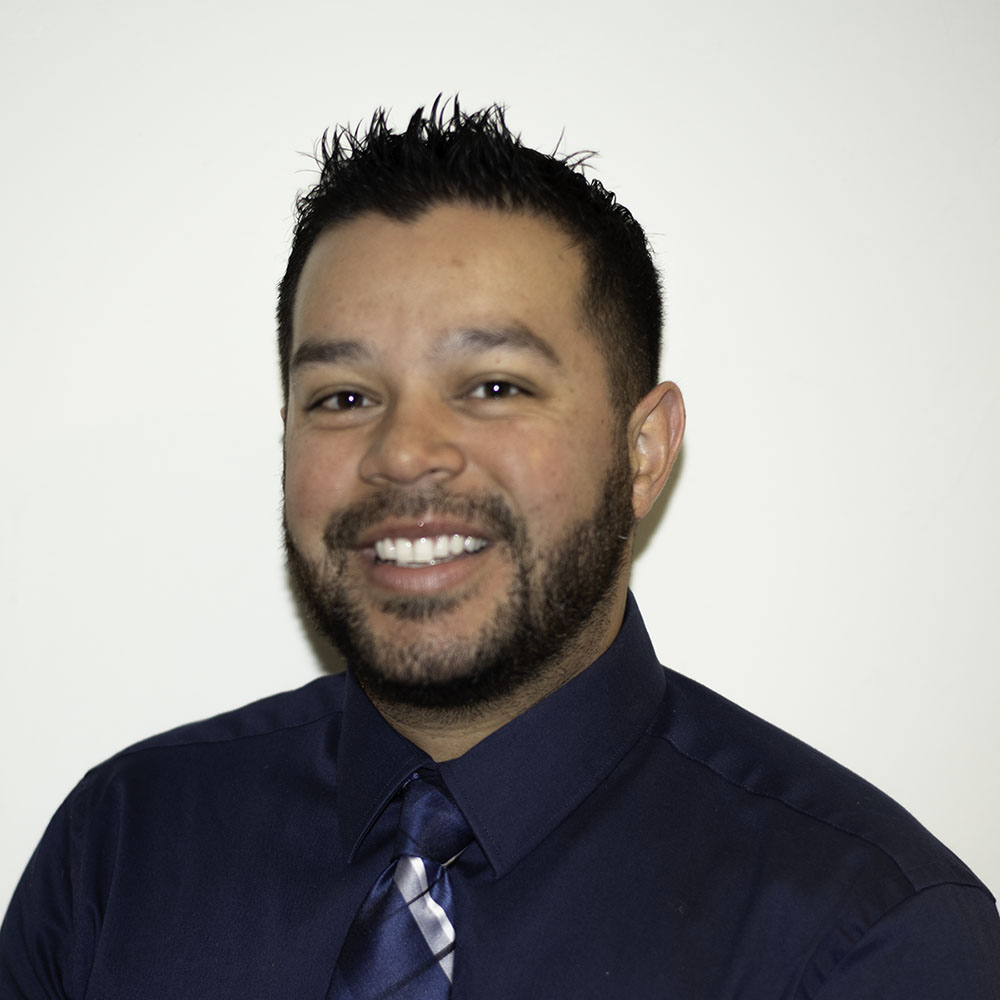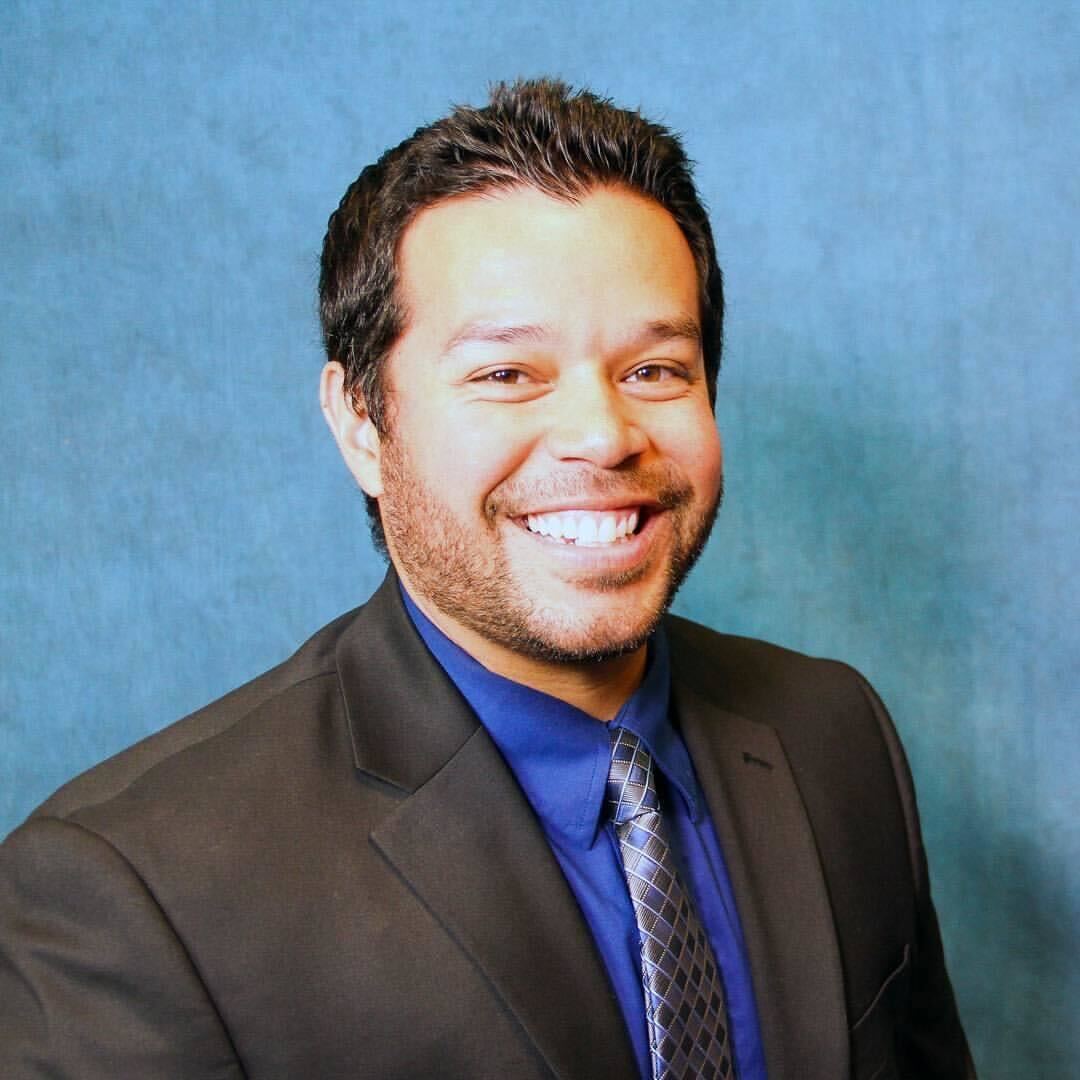Having completed school as a parent and full-time employee, ReUp Success Coach John Reyes helps people learn how to set and prioritize achievable goals.
by Meilee D. Bridges
As a ReUp Success Coach, John Reyes Jr. often spends time chatting with adult learners about their motivations. As individuals reflect on their goals, John encourages them to think about maintaining accountability and setting manageable expectations for themselves—just as he had to do for himself throughout college and graduate school.
Success coaching, he explains, “is an opportunity for you to have that conversation with somebody who is really just here to listen and to let you know that you’re not alone and that—not to sound cliché, but—we understand,” he says. “I was a parent and a full-time employee going to school; I understand it can be difficult. I understand it can be challenging. . . . I just want you to know that you have a space here to reaffirm what you want to do.”
“You have a space here to reaffirm what you want to do.”
The value of learning
A first-generation Latino college graduate, John appreciates the value of learning. His father left high school before earning his diploma to join the military; his mother spent only a single day in community college before realizing it wasn’t for her. “So education was instilled in my brother and [me] as ‘you need to do this because it will help you do better in your life,’” the Southern California native recalls.
John attended parochial school until eighth grade before moving to a public high school. While his brother preferred athletics, John gravitated toward academics (although as anyone at ReUp, including John himself, would tell you, he is an avid sports fan). “Education was my thing. . . . I loved school; I adored it. I wear glasses because I used to read at night in the dark, and it helped ruin my eyes!” he laughs heartily.
Juggling work, school, and a growing family
After high school, John decided to attend Santiago Canyon College part-time while working full-time. He graduated from the community college with his associate’s degree in liberal studies in just three years.
With one degree in hand, John wasn’t completely settled on what he’d do next. He was still working full-time, and he thought that a few years down the road, he might begin pursuing his bachelor’s in journalism. However, an unexpected opportunity arose in 2010. In February, John began working at Brandman University (which became UMass Global in September 2021), and the school offered to help pay for his education. That benefit meant John could embark on his bachelor’s two years earlier than planned. He began attending classes that fall.
“While at Brandman, I was working full-time and going to school part-time,” John recalls. “In my early 20s, I did not have much outside of work and school, so I spent a lot of my time just kind of focusing on and prioritizing that.”
“In success coaching, my focus is to make sure that you are maintaining clarity and confidence in achieving your goals.”
Of course, starting a family often alters one’s priorities. In 2012, John met his now-wife, and two years later, their son, Anthony, was born. “So things were getting a little bit tighter,” he admits, grimacing as he remembers. “But I was still able to manage everything. At that point, it was just electives that I was taking, so I was really able to build my schedule the way that I wanted.”
With the support of his family and his employer, John graduated with his bachelor’s degree in sociology in spring 2015. “I love just knowing that my son got to watch me walk across the stage,” he says appreciatively. “He’ll never remember that, but I will,” he adds with a laugh.
Setting reasonable expectations for juggling work, school, and family was a significant factor in John’s success as an undergraduate. For example, he usually opted to take only one course per session because that’s what the university would pay for. He also knew he could afford only so much time and energy for school given his full-time work schedule and family obligations. Achieving that balance gave John a crucial perspective that he applies to coaching ReUp students today. “Going to school is a full-time job in itself. Having a family is a full-time job. But if you take those and you put a couple part-time jobs on there, you’re carrying up to three full-time jobs!” he explains. “And all of that is just too much for one person.”
Expectations and attitudes
John’s career journey, most of which has been in higher education, prepared him well for his current post as a ReUp Success Coach. Before completing his associate’s degree, he worked at a nearby community college supporting students in the military. At Brandman, he started in the admissions office and eventually moved into academic advising. He has also had stints in accounts receivable and financial aid. “I was able to gain a lot of knowledge from being able to support people,” he says of his various positions within the college setting.

After completing his bachelor’s, John began thinking about earning a graduate degree. His then–academic advisor suggested pursuing a master’s program in public administration, but when reflecting on what he most loved learning in his sociology major, he realized he was less excited by business operations and administrative processes and more invested in empowering people to fulfill their potential. So he chose instead to earn his master’s in organizational leadership (MAOL).
John’s graduate work certainly honed skills that he brings to bear on ReUp coaching today. But it didn’t come without its own stresses. “School at that point started to become a challenge in the sense of just balance and meeting my expectations,” he shares. His second child, a daughter named Riley, had been born in 2016, and he continued to work full-time when he began his master’s in January 2017. “I was still doing fine, I was still passing my classes, and I continued to move forward,” he says. “It just felt like such a bigger lift.”
One way John made it through his MAOL was to take planned breaks every couple sessions—“just so that I could reassess my energy and regroup,” he explains. He also had to prioritize and plan ahead: attending school while working and tending to his family meant he either had to take time away from his wife and young children or stay up late to complete his assignments after everyone else was in bed. It required, as he says, an “adjustment of give and take.”
“I don’t like to refer to the people I support as students because they are so much more than that.”
Balancing work, life, and school also demanded occasional shifts in attitude. For instance, it was sometimes a challenge not to slip into the mindset of, as he describes it, “‘Ugh, I know I have to do this, so I’m just going to give my bare minimum’ rather than ‘I’m going to give it my everything because that’s what I want to do.’” That struggle became even more difficult as he neared the end of his master’s program, when he longed to focus more on enjoying parenthood.
Nevertheless, John pushed through, and in March 2019, he earned his MAOL, picking up a certificate in public and nonprofit leadership along the way—undeniable accomplishments considering how many competing priorities John had to juggle along the way.
Coaching the whole person
Two months after graduating, he landed the position of Success Coach at ReUp. John was drawn to the role because he could focus on people not just as students but as whole human beings. “I don’t like to refer to the people I support as students because they are so much more than that,” he explains. “It’s where they are in their life, how they’re doing, [and] all the other pieces that go together with their balance of family, support, work, finances. . . . And so they’re people or individuals to me.”
John describes his role as supporting people while they choose their best path and navigate the twists and turns of not only school but also life and career. He often has to distinguish it from two affiliated but different jobs he’s had in the past: admissions counselor and academic advisor. “In enrollment coaching,” he explains, “their focus is to get you back into school. In advising, their focus is to make sure that you’re following your academic requirements. In success coaching, my focus is to make sure that you are maintaining clarity and confidence in achieving your goals.”
“I love celebrating people [and] their wins, even the ones that they’ve achieved outside of school, because I don’t feel like we as a society take enough time to celebrate ourselves.”

Those aspirations, he clarifies, can be big or small, and they can be related to school or to achieving life balance. With every coaching session, he adds, “my focus is on you, it’s on providing you with the space for you to talk and think out loud with yourself, and it’s also providing you with that space for you to assess (1) where you are with your goals, (2) how you are going to get there, and (3) if your goals change, what your new goals are. . . . That’s what success coaching is beneficial for: these are up to 30 minutes for you to just focus on yourself.”
After nearly three years in the role, John says the most fulfilling aspect of his job is the connection derived from serving as someone’s sounding board. A major part of that connection stems from what he calls “validating your value”: “I love celebrating people [and] their wins, even the ones that they’ve achieved outside of school, because I don’t feel like we as a society take enough time to celebrate ourselves,” he shares. “And people may not have other people to celebrate them.”
But what he appreciates most about the coaching experience is “people’s ability to be strong enough to share something with a stranger. Especially for somebody who has taken a break from school—who may not be where other people in their lives are, where other people want them to be, or where they want to be—for them to share those feelings with somebody who they’ve never truly met, it’s very humbling, and it’s very rewarding to have those moments.”




